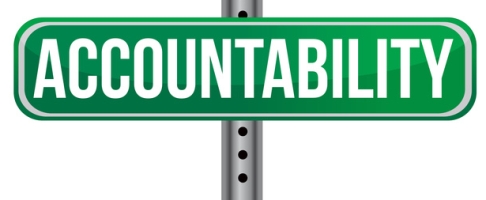We get a lot of calls asking who can be held accountable for parts of the IEP or 504. After asking a few questions, we realize parents are typically talking about the modifications/accommodations on their child’s IEP or 504. We have seen that a lot of IEPs or 504s have very vague descriptions written of these. A good modification/accommodation will answer these questions “who” will do “what”, “when”, “where” and “how”. For example, an accommodation of “modified assignments” would be written something like this: ” the regular education teacher will provide (student’s name) with a math assignment with 20% of the math problems. These math problems will determine understanding of the math concept taught. The number of the math problems that (student’s name) should complete will be circled. The regular education teacher will ensure that Student understands which problems to complete.”
Another example is “modified seating” or “preferential seating”. This accommodation is on many IEPs. An example of a good accommodation would be “the regular education teacher will provide (student’s name) with a seat close to the front of the class during instruction so teacher can check for understanding”. Or instead of “check for understanding” it could be “to help student maintain attention/focus”. This could also be changed from “close to the front of the class” to “an area with minimal distractions”. Each accommodation on your child’s IEP should be specific to your child. There should be an adult responsible for providing this accommodation or modification. When we sit as advocates we commonly see that schools want to make the child the “who” in these accommodations. For example, if the child is allowed to have frequent breaks during assignments, we are seeing “student will request a break when he is feeling overwhelmed”. If this is an accommodation that is allowed, then the “who” needs to be an adult helping to facilitate these. If this is something the child is working to learn, then this needs to be a self-advocacy goal. A better way to write this accommodation would be “the teacher will allow (student’s name) to have a break when he is overwhelmed. Signs that “student” is overwhelmed include flapping, spinning, talking louder. If “student” does not initiate a break, the regular education teacher should discreetly ask/determine if “student” should have a break. “student” can be overwhelmed during assemblies, before a test, or when there is a change in his schedule.”
Take a look at your child’s IEP or 504 to see how his or her modifications/accommodations are stated. They should be clearly written with answering all of the who,what, when, where, and how questions. If you have missing pieces, we recommend asking for a meeting before school starts to clarify them. This will help set your child up for success this coming school year.
We also offer a paperwork review in which we read through your paperwork thoroughly, and will write specific notes for you to ask your school to clarify. We are always happy to answer any questions you have over the phone or through e-mail as well. We have free IEP classes to empower you in how to better understand your child’s paperwork. Please enter your e-mail on the home page to receive the latest updates!
With Gratitude,
Wendy and Christina
